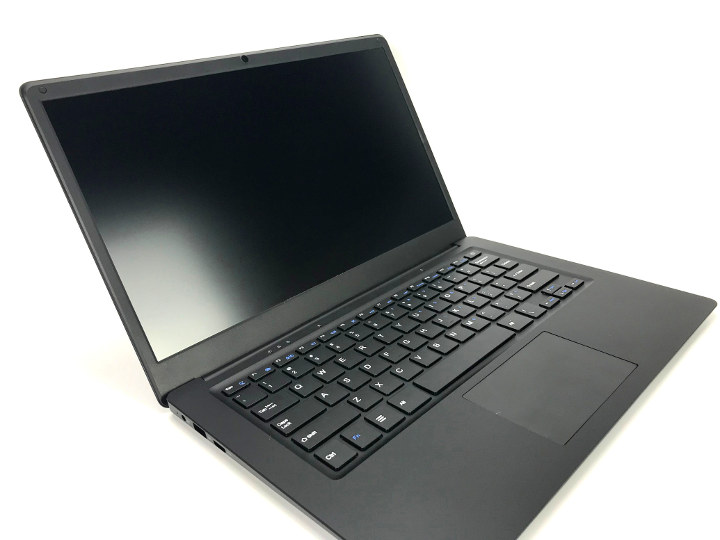Pine64 announced the Pinebook laptop in 2016. The ultra cheap ($89 and up) laptop was based on Allwinner A64 quad core Cortex A53 processor coupled with 2GB RAM, 16GB storage, and a 11.6″ or 14″ display. It was never meant to be a replacement for your current laptop due to the low end specifications, but you could still use it to tinker with Arm Linux or *BSD, as a lightweight portable terminal, etc…
Pine64 made several announcements in a single blog post right before FOSDEM 2019 where they’ll showcase some of their upcoming products including the Pinephone development kit that’s use to develop software for the upcoming Pinephone open source phone, PineTab *BSD/Linux-only tablet with Allwinner A64 SoC, and an 11.6″ display like Pinebook laptop, a retro gaming case compatible with Rock64 and Rock64Pro boards, an open source IP camera based on Allwinner S3L processor, Pine H64 Model B (Allwinner H6) board with Rock64 form factor, Rock64 Rev.3 with some improvements including PoE support, and the new Pinebook Pro laptop which we’ll have a closer look in this post.

Pinebook Pro laptop preliminary specifications:
- SoC – Rockchip RK3399 big.LITTLE hexacore Arm Cortex A72/A53 SoC
- System Memory – 4GB LPDDR4 RAM
- Storage – 64GB/128GB of eMMC flash (128GB is a free upgrade for registered users of Pine64 forum), SD card slot
- Display – 14″ 1080p IPS LCD panel
- Video Output – Via USB-C up to 4K60hz
- Audio – Aux out, microphone, speakers
- Connectivity – 802.11ac WiFi and Bluetooth 4.2
- USB – USB 3.0 and USB 2.0 ports
- Camera – 2MP front-facing camera / webcam
- Serial – UART
- Expansion – PCIe x4 that can take a m.2 NVMe SSD using an optional adapter
- Battery – 10,000 mAh capacity battery
- Power Supply – Charging via barrel port or USB-C
- Black magnesium alloy body
Pinebook Pro looks interesting as it’s Chromebook-class hardware, but capable of easily running Linux or *BSD distributions out of the box. Contrary to the first Pinebook, Pinebook Pro can be used as your daily driver thanks to the much better specifications. Pine64 has collaborated with Manjaro, KDE Neon, Netrunner, FreeBSD, NetBSD Q4OS, Armbian , DietPi and many other open source projects to bring software support to the laptop.
The target price is also attractive as the company plans to sell it for $199. Pinebook Pro won’t replace the original Pinebook, as the latter will still be sold after the launch of the Rockchip laptop. There may be a demo unit at FOSDEM 2019 at Allwinner booth this coming week-end.

Jean-Luc started CNX Software in 2010 as a part-time endeavor, before quitting his job as a software engineering manager, and starting to write daily news, and reviews full time later in 2011.
Support CNX Software! Donate via cryptocurrencies, become a Patron on Patreon, or purchase goods on Amazon or Aliexpress




